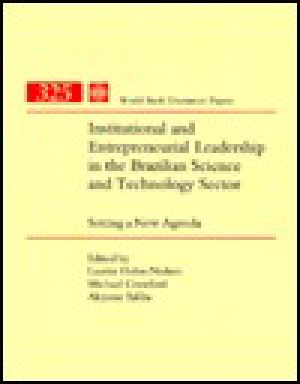Institutional and Entrepreneurial Leadership in the Brazilian Science and Technology Sector · Setting a New Agenda

- Authors
- Holm-Nielsen, Lauritz & Holm-Nielson, Lauritz & Crawford, Michael F.
- Publisher
- World Bank Publications
- Tags
- test
- ISBN
- 9780821336533
- Date
- 1996-01-01T00:00:00+00:00
- Size
- 0.23 MB
- Lang
- en
This paper reviews the main components of policy reform strategies designed to increase the efficiency of investments in science and technology (ST). It is a summary of viewpoints from a May 1996 workshop on ST policy reform in Brazil. The characteristics of an effective modern ST system are examined, along with the implementation of a system which encourages innovation. The accelerating pace of technological change poses new challenges. Rather than choose priorities, the government must establish an environment in which creativity of the national research community can be combined with the dynamism of the private sector. Resource allocation and responsibility rotation are necessary. A qualified and robust research community is based in good science education. Brazil's ST capacity is concentrated in a few of its wealthy states. Greater regional equity will add overall stability to the system. Cooperation between agencies can optimize the Federal government's resource advantage with the individual states' superior knowledge of local conditions. Reforming the system to encourage greater innovation and more efficient use of resources is a complex process which requires cooperation to make Brazil's science and technology sector more compatible with the size and economic complexity of the country.